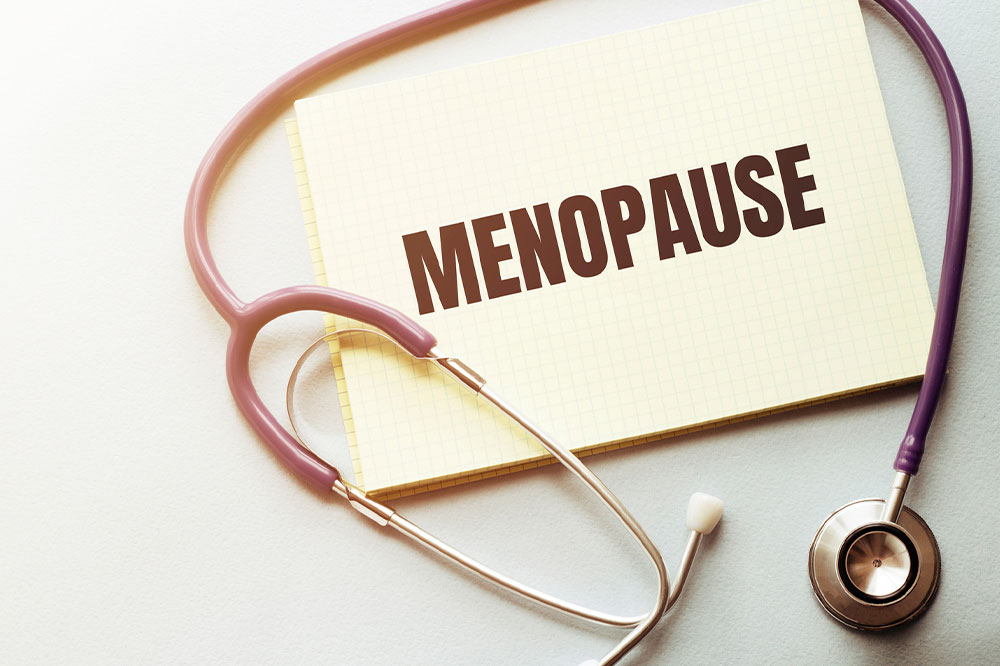Comprehensive Guide to Managing Menopause Symptoms Effectively
This comprehensive guide offers effective strategies for managing menopause symptoms, including maintaining a healthy weight, avoiding trigger foods, establishing regular exercise routines, and staying well-hydrated. It emphasizes holistic lifestyle modifications to help women mitigate hot flashes, mood swings, and other challenges associated with menopause, promoting overall health and well-being during this transitional phase.

Comprehensive Strategies for Managing Menopause Symptoms
Menopause signifies a pivotal transition in a woman's life, marking the end of her reproductive years. It is an important biological milestone diagnosed after a woman has gone twelve consecutive months without experiencing a menstrual period, signaling the cessation of ovarian function. This process results primarily from natural aging, which causes a decline in the production of key hormones such as estrogen and progesterone. These hormonal shifts are responsible for a variety of physical and emotional changes that women encounter during this time. Understanding menopause is essential for adopting effective management strategies to enhance quality of life during this transitional period.
The hormonal decline during menopause can lead to a range of symptoms, including hot flashes, night sweats, mood swings, sleep disturbances, and increased vulnerability to osteoporosis and cardiovascular issues. While menopause is a natural phase of aging, its symptoms can significantly impact daily well-being. Fortunately, various lifestyle modifications and therapies exist to help women alleviate these symptoms and maintain health and vitality. This comprehensive guide explores proven strategies for managing menopausal symptoms effectively, focusing on lifestyle factors such as diet, exercise, hydration, and overall health management.
Maintain a Healthy Weight to Support Hormonal Balance
One of the most influential factors in managing menopause symptoms is maintaining a healthy weight. During menopause, hormonal changes often cause a redistribution of body fat, especially around the abdomen, leading to increased weight gain. Excess weight not only affects appearance but also raises the risk of developing chronic health conditions such as heart disease, type 2 diabetes, osteoporosis, and increased severity of menopausal symptoms like hot flashes and mood swings. Moreover, carrying extra weight can interfere with hormonal balance, potentially exacerbating menopausal discomforts. Adopting a balanced diet coupled with regular physical activity helps women sustain an optimal weight, promoting better hormonal function, improved metabolism, and enhanced overall health.
Identify and Limit Trigger Foods to Reduce Symptom Severity
Diet plays a crucial role in managing menopause symptoms. Certain foods and beverages can worsen hot flashes, night sweats, and mood disturbances. Typically, triggers include caffeine, alcohol, fried foods, sugary snacks, and baked goods like cookies and pastries. These items may cause vasodilation or dehydration, aggravating menopausal discomforts. By being mindful of dietary choices and reducing or avoiding trigger foods, women can minimize the intensity and frequency of symptoms. Incorporating nutrient-dense foods rich in calcium, magnesium, and antioxidants, such as fruits, vegetables, lean proteins, and whole grains, supports overall health and hormonal stability.
Implement a Consistent Exercise Regimen for Symptom Relief
Engaging in regular physical activity offers numerous benefits for women experiencing menopause. Exercise helps regulate weight, improve bone density, enhance cardiovascular health, and elevate mood—countering some of the adverse effects of declining estrogen levels. Aerobic activities, strength training, yoga, and flexibility exercises can collectively improve physical fitness, reduce hot flashes, alleviate anxiety, and promote restful sleep. Even with busy schedules, dedicating at least three hours weekly to exercise can yield significant health improvements. Incorporating physical activity into daily routines, such as walking, cycling, or swimming, can foster a sense of well-being and empower women to cope more effectively with menopausal changes.
Prioritize Proper Hydration to Ease Discomfort and Promote Health
Decreased estrogen levels often lead to throat dryness, dryskin, and dehydration-related symptoms. Ensuring adequate hydration—ideally drinking between 8 to 12 glasses of water daily—can significantly relieve dryness, diminish bloating, and support bodily functions. Proper hydration also helps regulate body temperature, making hot flashes less intense and less frequent. Additionally, consuming herbal teas and water-rich foods like fruits and vegetables can further enhance hydration levels. Staying well-hydrated is a simple yet vital strategy to mitigate menopausal discomforts, maintain energy, and support overall health during this transitional phase.
In essence, navigating menopause effectively involves a holistic approach encompassing lifestyle adjustments, dietary modifications, physical activity, and hydration. Women can take proactive steps to manage symptoms, reduce health risks, and enjoy a vibrant, healthy life during and after menopause. Consulting healthcare professionals for personalized treatment options, including hormone therapy if necessary, can further optimize management strategies. Empowerment through knowledge and healthy habits enables women to embrace this natural life stage with confidence and resilience.





